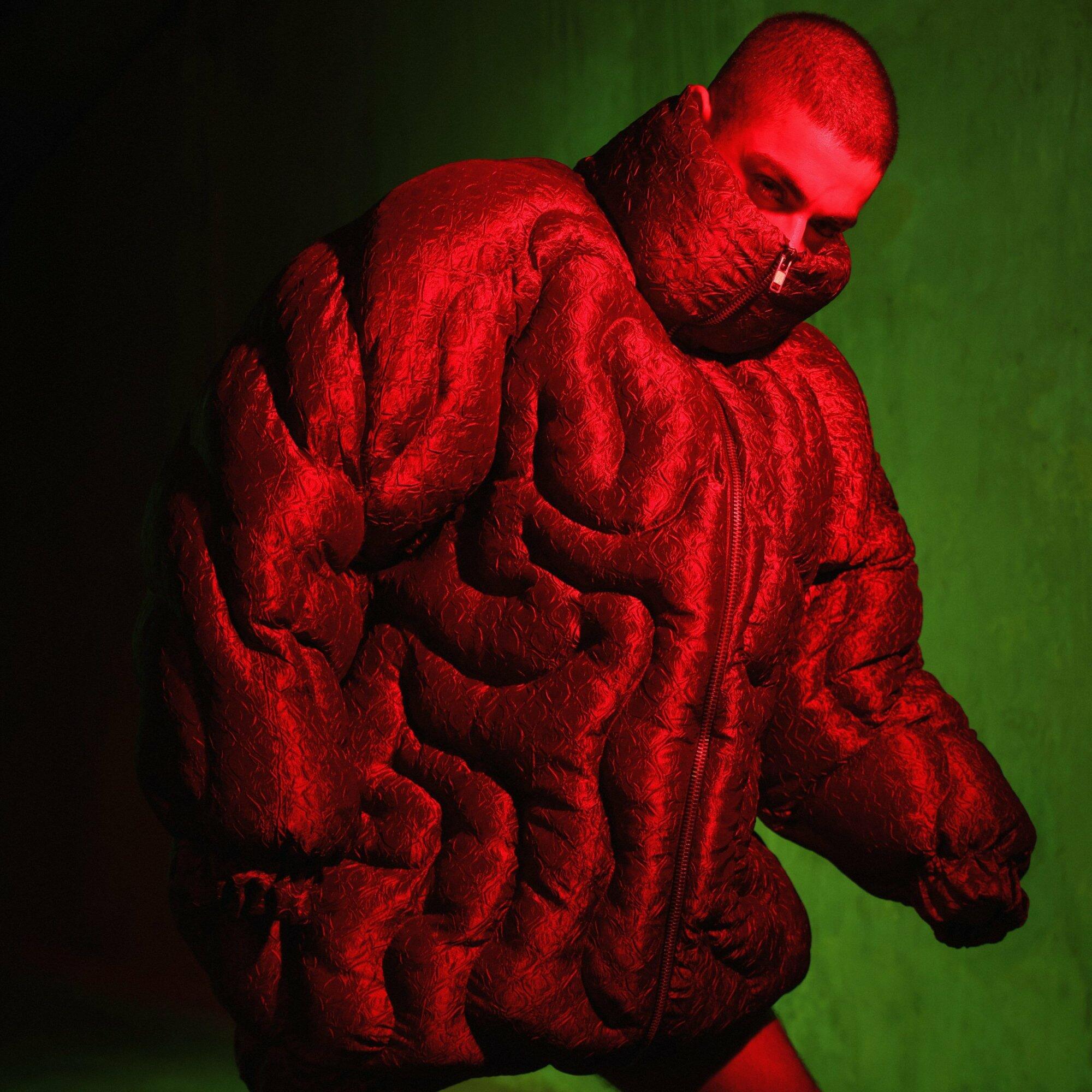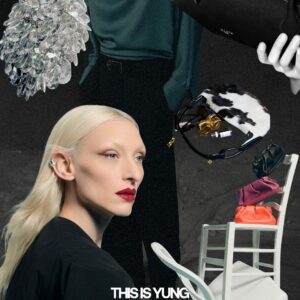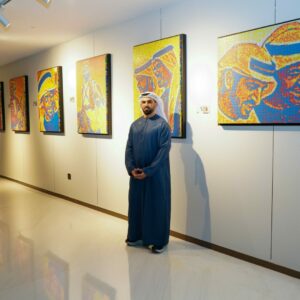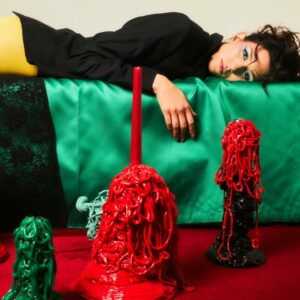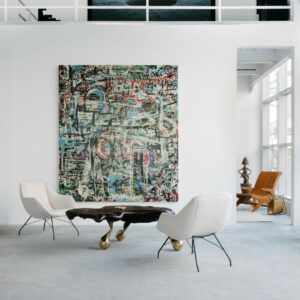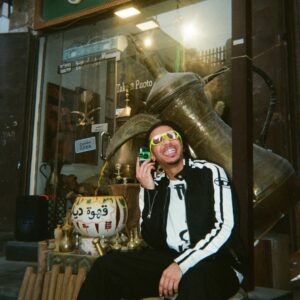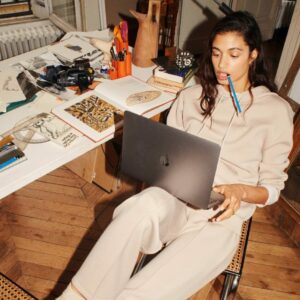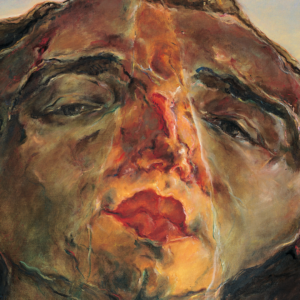The tale of an incredible nursery for fashion talent in Beirut. Co-founder Sarah Hermez (Instagram) tells us all about Creative Space Beirut (Instagram), the tuition-free, inclusive school that offers the Arab fashion industry some of its best talents in an incredible success story.
From being a magnetic place where Beirut’s famous nightlife was in full swing until the mid-2000s, Monot Street, at the intersection of East and West Beirut, has become a quiet lane lined with orange trees and small shops. It is there, on the sunny side of the street, that Creative Space Beirut (CSB) opened its doors to fashion design enthusiasts who otherwise would not have had any opportunity to develop their vision. Students are aged between 16 and 25, and come from all over Lebanon, including from the Palestinian and Syrian refugee communities. Here they follow an intensive tuition-free 3-year program.
How can one not be amazed by this initiative, launched by Sarah Hermez, who was just 23 at the time, and co-founded with Georges Rouhana (a creative director and producer) and Tracy Moussi (a brand and business development expert)? Generous, community-oriented projects often have a fairy godmother committed to carrying them towards their goal. In the case of CSB, it was Caroline Simonelli, Sarah Hermez’s Parsons School of Design professor and mentor.
Born and raised in Kuwait, Lebanese-Armenian Sarah Hermez returned to Beirut after graduating from Parsons New School, in New York City, where she had double-majored in fashion design and media studies. Here, she tells Yung about CSB’s grand adventure.
How did you come up with the CSB project ?
The idea of Creative Space Beirut came about in 2010 when I was sitting in Dean and Deluca in New York with Caroline Simonelli, my Parsons School of Design professor and mentor. I had already graduated from university at that point and had moved to Lebanon a few months earlier. I was back in New York for a visit, and I was talking to Caroline about how I was struggling to find a way to merge my passions and skill set – creativity, design, and social justice. Considering the amount of work that needed to be done in Lebanon, I wanted my efforts and time to go towards a vision that could potentially mean something, spark some kind of change. All of a sudden, she looked at me and said, “Why don’t you start a school?”. It was at that moment that I knew what I would spend the rest of my life doing. Of course, I had no idea how to do anything like it. I was 23, and it was going to be particularly challenging, considering I had never lived in Lebanon, and you know, never started a school.
I went home that day and immediately started drafting a proposal for a pilot project. The long-term vision for the project immediately came to me – I wanted it to develop into a self-sustainable school that was also a brand. Caroline told me if I could lay the foundations, she would come and help build the school with me. And so, the seed was planted and the pilot project was launched in June 2011. Soon after the launch of the pilot, project co-founders George Rouhana and Tracy Moussi joined the mission, and together we grew the organization into a social enterprise by introducing avenues of sustainability through the brand CSB, the online store csb-world.com and production projects. Organically, over twelve years, from the ground up, Creative Space Beirut developed into what it is today, while staying true to its original mission. Through the different strengths of the cofounders, Caroline with over 50 years of experience in New York’s fashion industry, George as a creative director and producer, Tracy with her experience in brand and business development, we have designed and directed the different aspects of the social enterprise, learning how to pivot and persist for the benefit of the program, its mission and the talent it fosters.
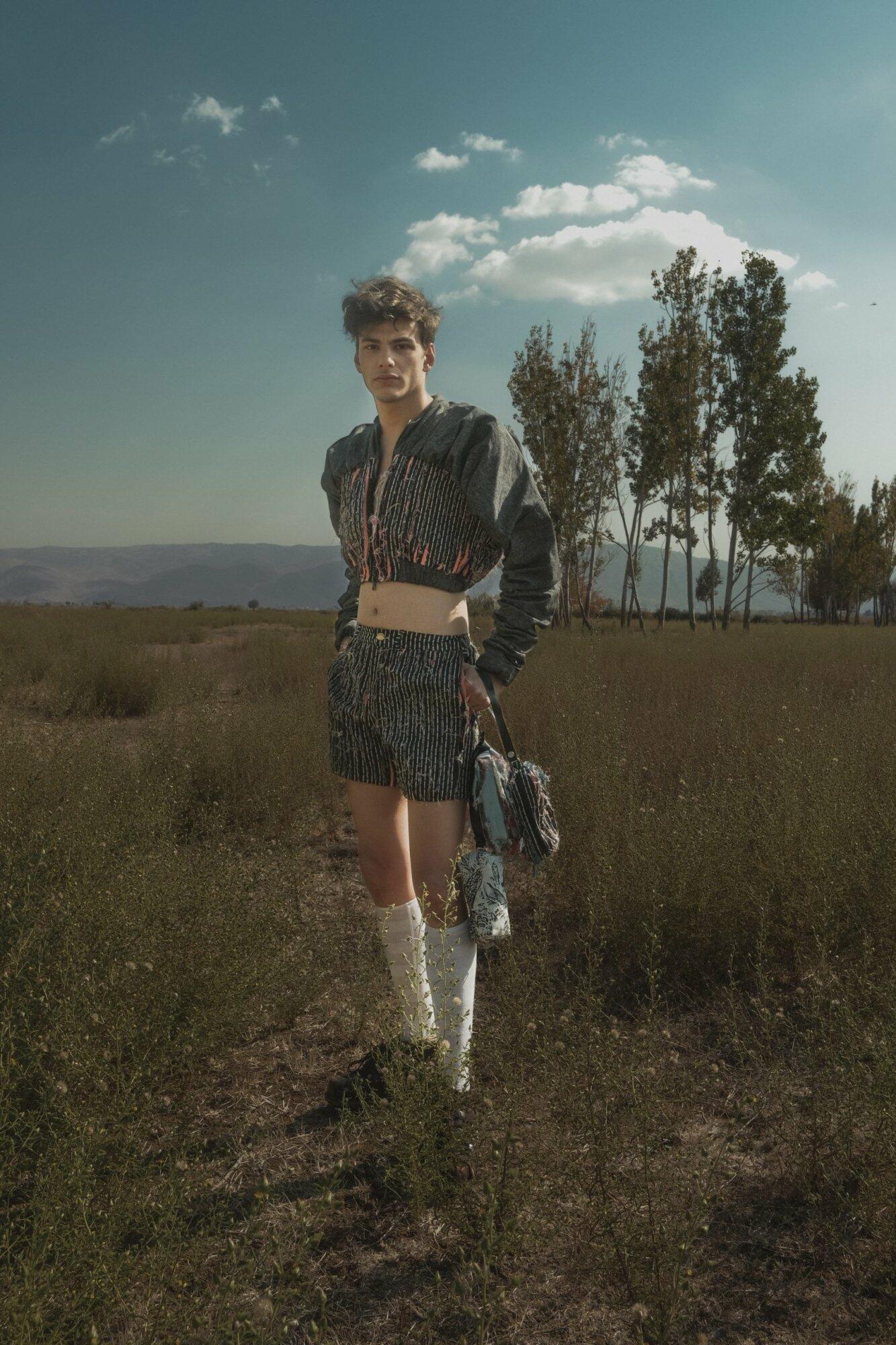
What is the most special thing about CSB?
CSB’s commitment to inclusivity, diversity, free education, collaboration and community is what makes it special. At the heart of the social enterprise is Creative Space Beirut School of Design (CSB-SD), a tuition-free school for fashion design that offers an intensive three year program. Each year, a small pool of students are admitted on the basis of talent and determination, and are financially supported throughout their journey. Students are aged between 16 and 25, and come from all over Lebanon, including [from the] Palestinian and Syrian refugee communities. The curriculum combines advanced technical training with courses involving creative research and development, as well as theory, marketing and branding and digital fashion. The curriculum also incorporates internships, and collaborations with other brands, such as upcycling projects and production projects that give students a peek into the industry, providing them with a realistic education.
Throughout each year, collaborations, exhibitions and fashion shows act as experiential learning and exposure for the students. Students produce collections that are showcased at the end-of-year fashion shows and exhibitions. The events engage the local community through creative and musical collaborations, model training and an extensive volunteer program. Student designs are sold to help sustain the school.
With the resources, training, and support provided by CSB School of Design, graduating students have gone on to pursue Master’s programs and apprenticeships abroad, teach at various local institutions, enjoy illustrious careers in the fashion industry, and launch internationally recognized and awarded brands. Some of the alumni come back and teach at the school and collaborate with the brand. The circular ecosystem, from education to alumni support, to hiring alumni as teachers, creates a community unique in its nature.
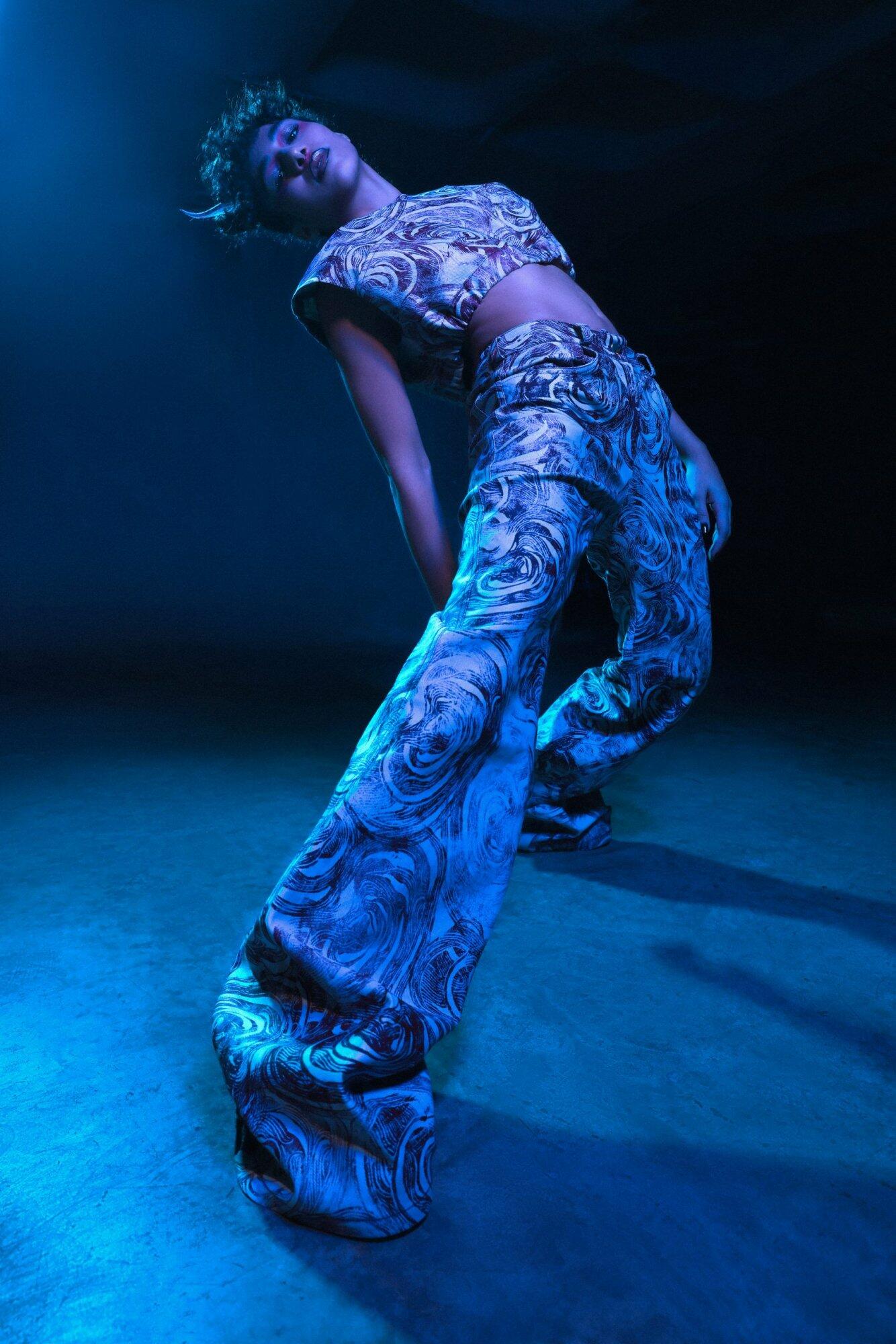
What do your alumni have in common?
All our alumni have a certain shared determination to learn. During their three years at CSB-SD, they learned not just technical and creative skills, but real-life skills required in the industry and beyond, including the importance of collaboration, cooperation, and community, especially in hard times. They carried these lessons into the world once they graduated.
Can you tell us one proud moment you’ve had because of CSB ?
I can tell you a few proud moments! To name a few: Heba Nahle was offered a scholarship for a Master’s degree in Politecnico di Milano, while there she worked in robotics, fashion technology and production. Roni Helou won the Fashion Trust Arabia Prize for his ready to wear brand, Aline Seukunian was hired to teach at Lebanese American University, and continues to teach our own students at Creative Space Beirut School of Design. Hazem Kais launched his own brand, Goodkill, Ahmed Amer launched his own eponymous brand, Ibrahim Fakhereldeen became a well-known stylist, and Amir Al Kasm was hired as a designer for Krikor Jabotian. An especially proud moment was graduating the class of 2022. This group of six students, Anis Al Jamal, Joe Kouiek, Minas Oghloukian, Michel Sabbagh, Safaa Al Bardeni and Ziad Serhan, had gone through the worst three years that we have ever lived and still managed to work hard and produce beautiful collections. Basically, our graduate students making their own way is what makes us most proud.

What achievement made you feel that you had reached your goal?
I mentioned earlier that Creative Space Beirut is a lifelong mission. Our dream is to have a campus with different tuition-free programs within the creative industries – a beautiful campus with amazing facilities and dorms. We are growing an ecosystem in the midst of complete chaos, in the absence of a state. I’m pretty sure that I will never feel that the aim is reached, because there is always work to be done. I would feel fulfilled to be able to build solid forms of sustainability through the growth of our brand, CSB and the online store csb-world.com, in order to not rely so much on the grant system. To build an ecosystem that is truly self-sustainable, that’s the aim.
What would CSB’s message to the fashion industry be?
Although we are still struggling to grow, sustain and function in a country that works against us, we’ve still managed to build an ecosystem that promotes equal opportunity and ethical practices. Imagine what would happen if we were able to build such ecosystems all over the world? Imagine that the global fashion industry was committed to similar values. The fashion industry is one of the most harmful industries in the world, to both the environment and to the people it exploits. It is very possible to be ethically profitable and to use a portion of profits for social impact.
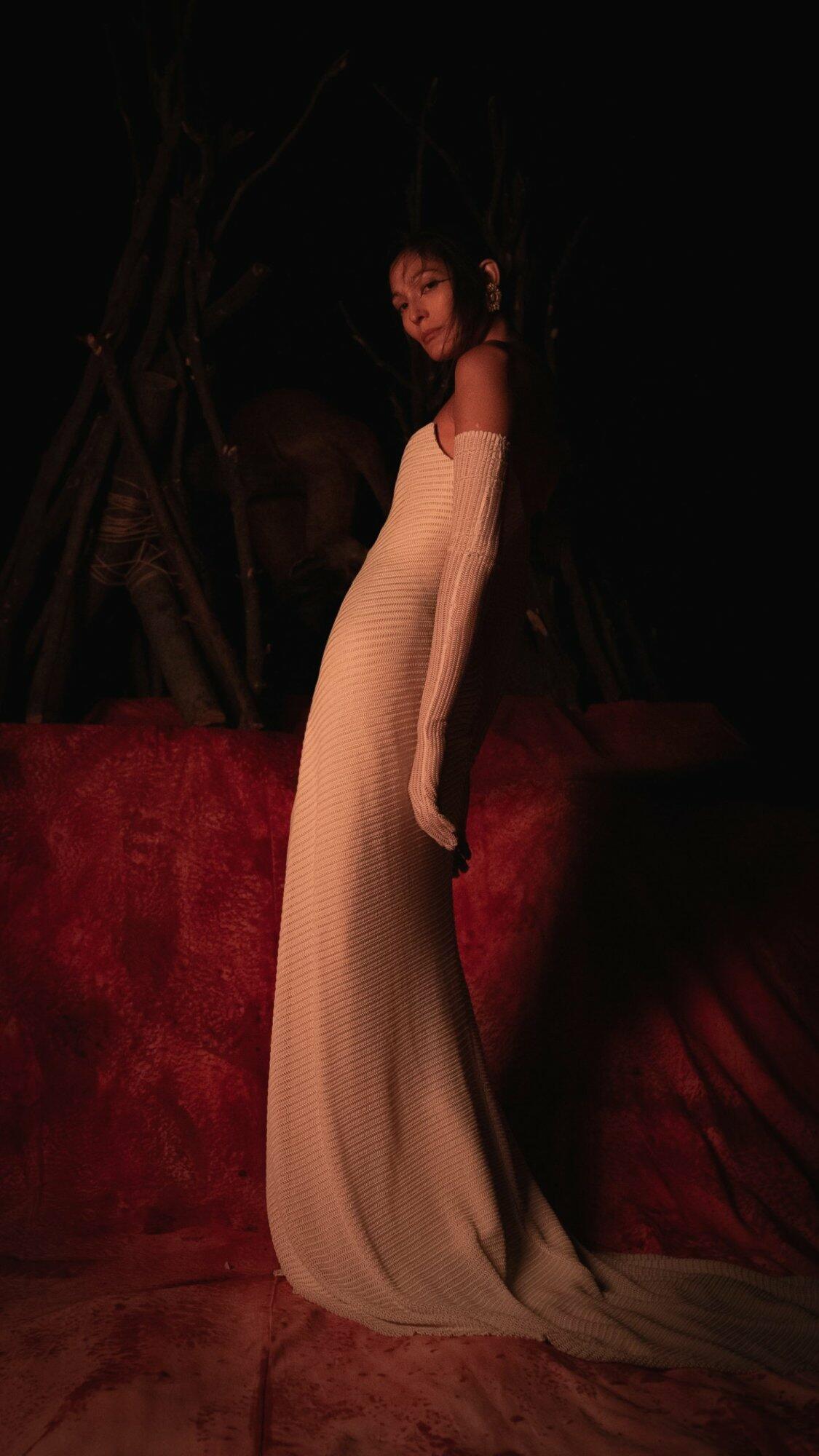
Yung also asked alumni Amir Al Kasm and Ahmad Abdullatif, along with new graduates Anis El Jamal, Joe Koueik and Minas Oghloukian about their collections, creative process and plans in the near and far future. Their responses give an even clearer idea of the essence of CSB and the intrinsic culture of a school that graduates, above all, artists with authenticity and a clear knowledge of their craft, along with a family spirit and a strong sense of solidarity.
Alumnus Ahmad Abdullatif tells Yung that he focuses much more on feeling and interaction than volumes and shapes, and that in his last collection, in 2022, he wanted to inspire joy and positive energies in dark times, with an amalgam of the 70’s and oriental aesthetics, lots of bright colours and beads and funky cuts.
New graduate Minas Oghloukian says that the inspiration of his “Genesis” collection came during the pandemic, where he started to think about how complex yet also fragile the human body is; it made him wonder about our existence and purpose as human species.
Alumnus Amir Al Kasm tells Yung that he drew a collection tailored to illustrate the story of an angel who fell from grace, wandering the earth, fighting the temptation of sin. A contradictory journey, mainly reflected in the contrasting choices of fabric.
New graduate Joe Koueik explains that his thesis collection was inspired by the freedom of being. Expressing your naked truth, following your gut instinct leads to connecting with the raw untouched parts of yourself, learning to live your life in all its raw nature.
New graduate Anis El Jamal confides that being alone during the pandemic led him to a breakdown that made him question his ability to control his emotions. Hence his collection explores the question: are we really in full control of our own lives? A battle for control ensued in the landscape of the mind and this is translated into clothes.
When asked about their fondest memory at CSB, all spoke about the extraordinary family spirit and recalled crazy all-nighters at school, where they helped each other finish their projects, as much as they built each other up. “The best moments were definitely all the overnights we held at the space and stayed late at night to continue work on our projects to finish on time, which always turned out to be 25% work and 75% deep discussions, each sharing their cultural backgrounds, personal stories and just getting to know one another better. Bonding with other souls on that level of trust, respect and admiration is what I will always be grateful for in CSB. We are family,” says Joe Koueik. The words of their colleague Minas Oghloukian could have been said by any of them, “CSB helped me to be more comfortable socially around people and to have confidence to interact with them. And, most importantly, they taught me the importance of adapting, problem solving and to keep on going towards my passions.” One of the most striking stories told to us wasthat of Ahmad, recalling a difficult period in school: “We had been saving money and material for months to be able to continue, and all of a sudden, came the news of a grant. It was such an emotional moment that I saw a lot of people crying when it was announced.”
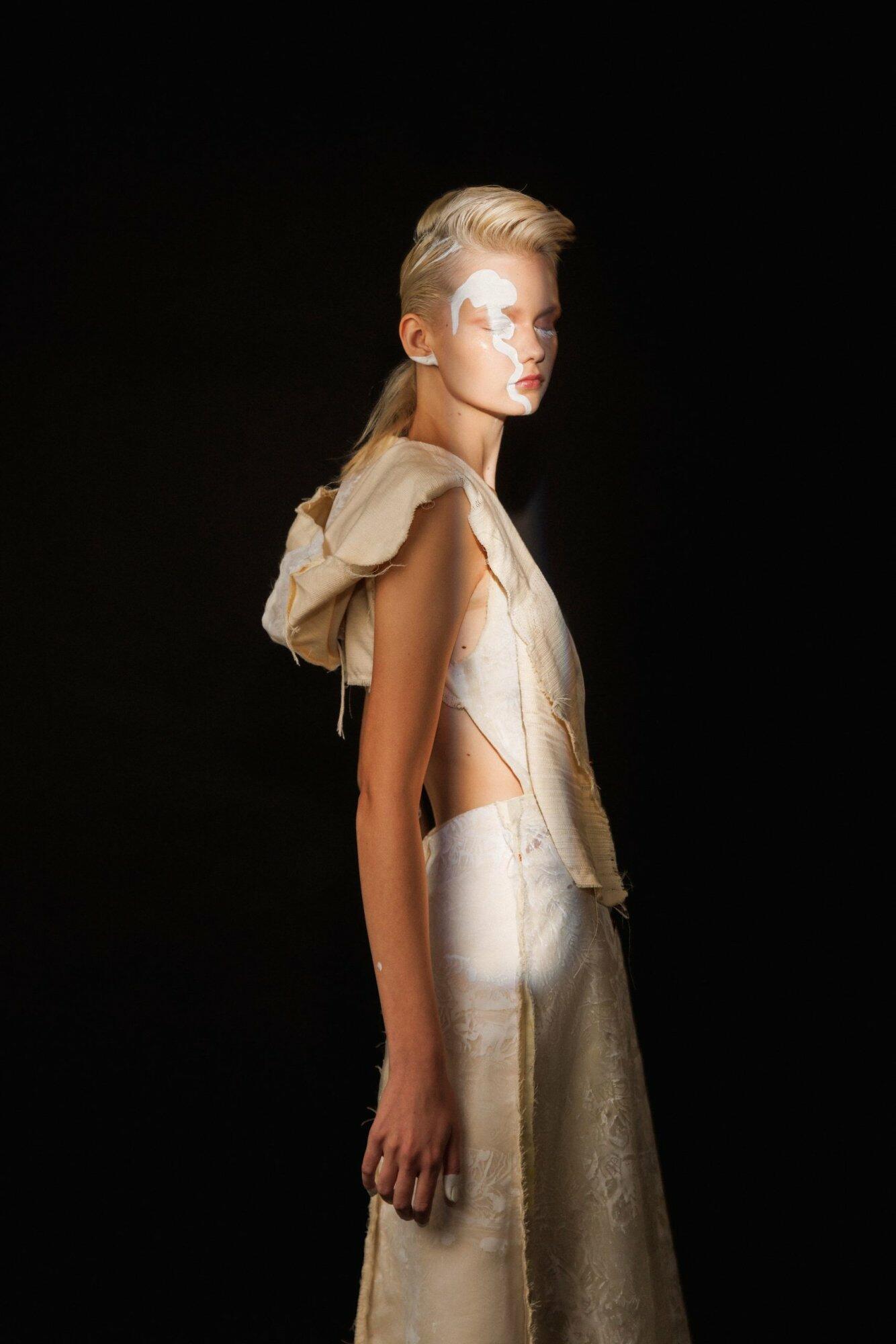
Discover all the latest art news from the region, including interviews with pioneers like Sarah Hermez, on our Art & Culture pages.
